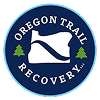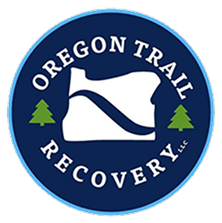Understanding Dual Diagnosis Treatment: Your Path to Complete Recovery

Key Takeaways
Here’s a brief overview of the following page:
- Dual Diagnosis Defined: Dual diagnosis refers to having both a mental health disorder (like depression or PTSD) and a substance use disorder simultaneously, requiring integrated treatment.
- Oregon Trail Recovery’s Approach: Our program integrates trauma-informed care using the Seeking Safety curriculum, focusing on whole-person healing with compassionate, evidence-based methods.
- Treatment Options: Offers partial hospitalization, intensive outpatient, and outpatient programs, plus sober living, 12-step integration, and adventure therapy to support recovery.
- Breaking Stigma: Education and open conversations help reduce shame, emphasizing that dual diagnosis is a medical condition, not a personal failing, and recovery is achievable.
- Supporting Loved Ones: Look for signs like mood swings or substance use to cope, approach conversations with empathy, and set healthy boundaries while encouraging treatment.
Connect with our Oregon Trail Recovery team today to explore whole-person recovery opportunities near you.
Resources
- https://pmc.ncbi.nlm.nih.gov/articles/PMC4695242/
- https://www.psychiatry.org/patients-families/stigma-and-discrimination#:~:text=More%20than%20half%20of%20people,and%20eradicate%20it%20can%20help.
- https://library.samhsa.gov/sites/default/files/issue-brief-co-occurring-pep24-01-008.pdf
- https://www.ncbi.nlm.nih.gov/books/NBK144297/
- https://www.save.org/wp-content/uploads/2025/02/2023_Suicide_Data_States_TOY.pdf
- https://www.oregon.gov/oha/HSD/AMH/DataReports/SUD-Gap-Analysis-Inventory-Report.pdf
Important Note
Oregon Trail Recovery is not certified or licensed as a mental health treatment provider—meaning we do not explicitly offer dual diagnosis treatment. However, our Oregon recovery team understands that mental wellness is critical to sustainable sobriety.
That’s why we integrate trauma-informed care and whole-person healing opportunities through evidence-based approaches within our addiction treatment framework.
We also integrate various wellness practices, such as outdoor adventures, to help our patients set the foundation for long-term healing and create healthy coping mechanisms.
What Is Dual Diagnosis Treatment?
Dual diagnosis treatment supports individuals who are facing both a mental health condition and a substance use disorder (SUD) at the same time. This combination, often called co-occurring disorders, requires a thoughtful, integrated approach to care.
Conditions like depression, anxiety, or bipolar disorder can sometimes lead people to turn to substances as a way to cope. However, over time, that substance use can worsen mental health symptoms, creating a cycle that’s difficult to escape without support.
For instance, someone might begin drinking to ease anxiety, only to find that the alcohol deepens their anxiety over time.
How Dual Diagnosis Treatment Can Help
Integrated treatment means addressing both mental health and addiction together. This approach recognizes how closely these challenges are linked and helps individuals build the tools they need to heal, manage symptoms, and create lasting change.
For more information on SUD and recovery, connect with our multidisciplinary, Oregon team today.

The Numbers Behind Dual Diagnosis
The statistics around dual diagnosis treatment are eye-opening. To start, about 8.9 million adults in the U.S. have co-occurring mental health and substance use disorders. That's roughly 1 in 25 American adults, showcasing just how wide-reaching the issue really is.1
Here are some more important facts about dual diagnosis:
- More than 50% of people with dual diagnosis don't get treatment for either condition.2
- A recent study showed that only 17% of Americans with dual diagnosis received care for both disorders.3
- Men with mental health disorders are more likely to develop substance use problems than women.4
This gap in care can often be attributed to misinformation about their symptoms, stigma, or insurance barriers.
The Importance of Care for Oregon Residents
In Oregon specifically, the need for dual diagnosis treatment is significant. Oregon ranks 9th in the US for suicide rates.5
Additionally, the state has some of the highest rates of methamphetamine and opioid use. These statistics show why comprehensive dual diagnosis treatment is so important in our region.6
How Oregon Trail Recovery Helps with Dual Diagnosis Treatment
At Oregon Trail Recovery, we recognize that mental health and addiction are deeply intertwined. While we’re not a licensed mental health treatment provider, we take mental wellness into account and intentionally weave trauma-informed care into everything we do – because true recovery means healing the whole person.
Our team incorporates the Seeking Safety model, an evidence-based approach designed for individuals facing both PTSD and substance use challenges. This allows us to meet clients where they are, offering practical tools for staying grounded and emotionally supported throughout treatment.
Many members of our team know this journey firsthand. They’ve experienced the ups and downs of recovery, which brings a level of empathy and understanding that can’t be taught.
Here, clients are seen, heard, and supported – every step of the way.
How We Create a Path for Lasting Change
Our approach to recovery focuses on:
- Compassionate boundaries that show love while maintaining safety.
- Mission over money - we keep clients as long as they need help.
- Clinical strength with evidence-based treatment methods.
- Whole-person healing that addresses both addiction and underlying issues.
We also believe in "loving with an edge,” which means we'll support you through difficult times, even when that means having tough conversations.
Our goal is to be your last treatment experience and the place where you finally find lasting recovery. We’re here to hold you accountable to a happier, healthier future.
Levels of Care and Treatment Options
At Oregon Trail Recovery, we offer multiple levels of care to meet clients where they are in their healing journey, including:
Partial Hospitalization Program (PHP)
This provides intensive treatment during the day while clients live in sober housing. This level of care is ideal for those transitioning from inpatient treatment who still need strong clinical support.
Intensive Outpatient Program (IOP)
This involves attending therapy three to five times per week. It’s well-suited for individuals who are ready for more independence but still benefit from a structured routine.
Outpatient Program (OP)
This offers one to two sessions per week and is best for people in the later stages of recovery who are maintaining progress and rebuilding their daily lives with ongoing support.
Each level of care is designed to promote stability, growth, and long-term wellness, no matter where you begin. We also partner with Pacific Crest Trail Detox to provide detox and inpatient options to start the healing journey.
Evidence-Based Treatment Modalities in the Recovery Journey
Oregon Trail Recovery uses several proven methods in our recovery planning. Some of the most common treatment options we provide include:
Cognitive Behavioral Therapy (CBT)
CBT is our primary clinical approach. This therapy helps people identify and change negative thought patterns that contribute to both addiction and mental health problems.
CBT works well for dual diagnosis treatment, as it teaches practical coping skills, helps recognize triggers for both conditions, and can be adapted for different mental health disorders.
Dialectical Behavior Therapy (DBT)
DBT focuses on teaching emotional regulation skills that many in recovery find beneficial, as intense emotions and stressors can be common triggers during the healing process.
DBT teaches four main skill areas, including:
- Mindfulness: Staying present in the moment.
- Distress tolerance: Handling crisis situations without substances.
- Emotion regulation: Understanding and managing feelings.
- Interpersonal effectiveness: Building healthy relationships.
Seeking Safety Curriculum
This evidence-based approach specifically addresses trauma and substance use together. Many people with dual diagnosis have experienced trauma, which can contribute to both addiction and mental health problems.
Seeking Safety helps by teaching grounding techniques for trauma symptoms, providing coping skills for cravings and triggers, and addressing any feelings of shame and self-blame.
Adventure and Experiential Therapy
Our outdoor activities aren't just fun – they're therapeutic tools. Activities like hiking and disc golf help by reducing stress and anxiety naturally while also helping you build confidence and self-esteem.
Supporting a Loved One During Dual Diagnosis Treatment
If someone you care about needs dual diagnosis treatment, you play an important role in their recovery. Your support can make a real difference, but it's important to know how to help effectively.
Signs Your Loved One Might Need Dual Diagnosis Treatment
If you’re unsure if your loved one is struggling, make sure you look out for these warning signs:
- Turning to substances to cope with emotions
- Mood swings that seem extreme
- Withdrawing from family and friends
- Problems at work or school
- Neglecting personal care
- Talking about hopelessness or suicide
- Previous mental health or addiction treatment that didn't work
However, it’s important to note that one or two of these symptoms on their own may not point towards needing dual diagnosis treatment. Our team can answer any questions you may have.
How to Approach the Conversation
Bringing up the topic of dual diagnosis treatment with a loved one can be challenging. It helps to choose a time when they’re not under the influence, so the conversation can be calm and meaningful.
It’s also important to be specific about what you’ve noticed, such as changes in mood or behavior. Offering support, like helping them research treatment options, shows that you’re on their side.
Supporting During Treatment
Once your loved one enters treatment, your role doesn’t end – it just changes, and learning more about their mental health and substance use challenges can help you understand what they’re going through.
Many treatment programs include family therapy or education, which can be a great way to stay involved. Just as important, though, is taking care of yourself. Burnout can make it harder to be present and supportive, so make sure that you’re patient with the process.
Setting Healthy Boundaries
Being supportive doesn’t mean saying yes to everything. Boundaries are essential in helping both you and your loved one stay on track. In some cases, continuing your support may even depend on their willingness to engage in treatment.
These boundaries aren’t about punishment – they’re about protecting your peace and creating an environment where recovery is possible. While you can’t make the decision for them, you can be ready with compassion and clarity when they’re ready to take that first step.

Ready to Make a Change in Your Life?
If you or someone you love is struggling with both addiction and mental health issues, help is available. Oregon Trail Recovery can provide the comprehensive care needed for lasting recovery.
Our team understands the complex relationship between addiction and mental health, and we're here to support you through every step of the healing process. With evidence-based treatments, compassionate staff, and a supportive community, we can help you build the life you deserve.
Don't wait for things to get worse. Substance use disorder treatment is most effective when started early. The sooner you get help, the sooner you can start feeling better.
Get in Touch Today
Ready to learn more? Contact Oregon Trail Recovery today to discuss your treatment options. Our admissions team can answer your questions and help you understand what to expect.
We’re here to show you: recovery is possible, and you don't have to face this alone. Let Oregon Trail Recovery be your partner on the trail to freedom from addiction and mental health challenges.







